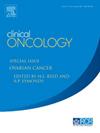英国食道癌-胃癌生物标记物检测最佳实践:采用改良德尔菲法制定的专家共识建议。
IF 3.2
3区 医学
Q2 ONCOLOGY
引用次数: 0
摘要
目的:食管胃癌(OGC)是全球最常见的恶性肿瘤之一,与疾病相关的死亡率很高。预测性生物标记物是一种可以客观测量的分子,可用于指示对治疗干预可能产生的反应,从而促进个体化癌症治疗。然而,英国各地对生物标志物检测的接受和实施情况仍存在差异:我们开展了一项改良的德尔菲研究,为英国OGC生物标志物检测的最佳实践制定共识建议。我们采用了两轮在线问卷调查,随后召开了一次虚拟共识会议。讨论的生物标记物包括 HER2、MSI/MMR 和 PD-L1。讨论的主题包括生物标记物的整体途径、分析前、分析中和分析后的注意事项,包括当前实践中面临的挑战:分别有 26 名和 18 名参与者完成了第一轮和第二轮德尔菲问卷调查,来自英国各地的病理学家和肿瘤学家各占一半。在多个主题上达成了共识(>80% 的一致意见),其中包括对路径标准化的要求(必须包括整个组织过程中的协调)、对质量保证流程的要求(以确保检测的准确性和有效性)以及对病理报告上清晰、详细的信息的需求(以支持治疗决策)。对于根据组织学对所有生物标记物进行反射检测,肿瘤学家们已达成共识;不过,病理学家们显然对工作量和病理学家的可用性表示担忧。总体而言,与会者认为反射检测可提高治疗决策的速度并改善患者护理:这些建议反映了最佳实践,应予以实施,以支持多学科团队在食管胃癌方面的快速决策。结果反映了标准化的必要性,并证明了食管胃癌生物标记物的申请和检测者在临床实践中面临的挑战,同时也表明了病理学家能力方面的重大问题。本文章由计算机程序翻译,如有差异,请以英文原文为准。
Best-Practice Biomarker Testing of Oesophago-Gastric Cancer in the UK: Expert Consensus Recommendations Developed Using a Modified Delphi
Aims
Oesophago-gastric cancers (OGCs) are amongst the most commonly diagnosed malignancies worldwide and are associated with high disease-related mortality. Predictive biomarkers are molecules that can be objectively measured and used to indicate a likely response to therapeutic intervention, thus facilitating individualised cancer therapy. However, there remains variation in uptake and implementation of biomarker testing across the UK.
Materials and methods
We conducted a modified Delphi study to formulate consensus recommendations for best-practice biomarker testing of OGC in the UK. We employed two rounds of online questionnaires followed by a virtual consensus meeting. Biomarkers for discussion included HER2, MSI/MMR, and PD-L1. Topics comprised the overall biomarker pathway, pre-analytical, analytical, and post-analytical considerations, including challenges in current practice.
Results
Twenty-six and eighteen participants completed the first and second round Delphi questionnaire, respectively, with an even split of pathologists and oncologists from across the UK. There was consensus (>80% agreement) across several topics, including the requirements for standardisation of the pathway, which must include coordination throughout the tissue journey, requirements for a quality-assured process to ensure accuracy and validity of testing, plus the need for clear, detailed information on the pathology report to support treatment decisions. There was consensus amongst oncologists regarding reflex testing of all biomarkers depending on histology; however, concerns over capacity in relation to workload and availability of pathologists were evident among the pathologists. Overall, participants were in the opinion that reflex testing improves the speed of treatment decisions and improves patient care.
Conclusion
The recommendations reflect best-practices and should be implemented to support rapid multidisciplinary team decision-making within oesophago-gastric cancer. Results reflect the need for standardisation and demonstrate the challenges faced in clinical practice by those requesting and testing biomarkers for oesophago-gastric cancer, suggesting significant concerns relating to pathologist capacity.
求助全文
通过发布文献求助,成功后即可免费获取论文全文。
去求助
来源期刊

Clinical oncology
医学-肿瘤学
CiteScore
5.20
自引率
8.80%
发文量
332
审稿时长
40 days
期刊介绍:
Clinical Oncology is an International cancer journal covering all aspects of the clinical management of cancer patients, reflecting a multidisciplinary approach to therapy. Papers, editorials and reviews are published on all types of malignant disease embracing, pathology, diagnosis and treatment, including radiotherapy, chemotherapy, surgery, combined modality treatment and palliative care. Research and review papers covering epidemiology, radiobiology, radiation physics, tumour biology, and immunology are also published, together with letters to the editor, case reports and book reviews.
 求助内容:
求助内容: 应助结果提醒方式:
应助结果提醒方式:


